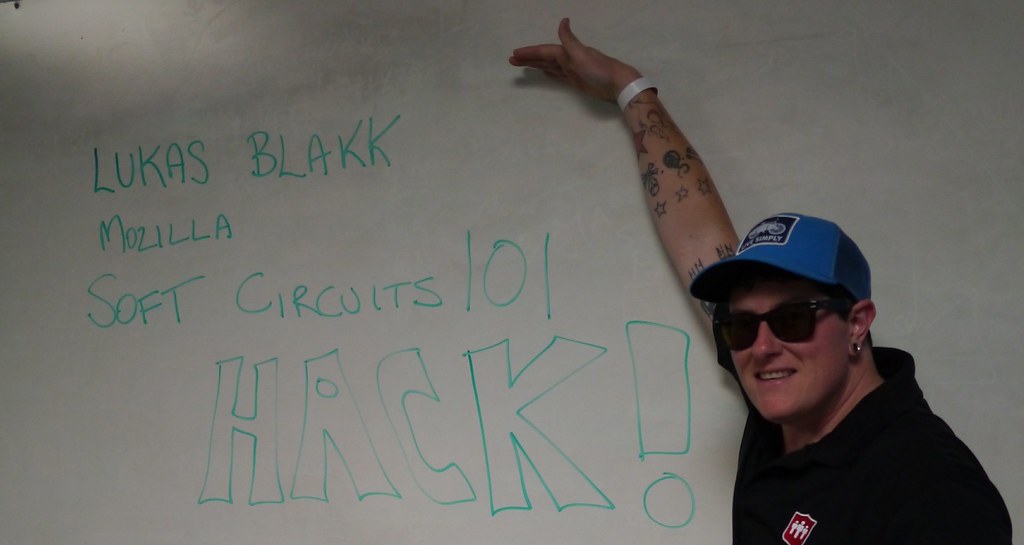
This past weekend I led another soft circuits 101 workshop as a Mozilla Rep at a women’s music festival near SF called Fabulosa. I had one hour to teach people really basic electricity, circuits, and how to ‘hack’ their clothes/sculptures/lives with a 3V battery and some LEDs.

The reason I love to do this workshop is because I find it gives participants a physical representation of the hacker spirit Mozilla aims to embody for the web. Learning soft circuits is just the tip of the iceberg and I always stress that the web has much more info for them to continue exploring, learning, being curious about how to create and modify technology in their lives. In one hour, I just show them how to make light.
This workshop was smaller than the ~80 girls who came through at Dare 2B Digital. The festival setting meant there were more conflicts of interest so I had 6 participants instead of the 20-25 I had planned for. The 6 participants were all very enthusiastic though, and we started off with a go-around to hear why people were interested in learning soft circuitry. One person was hoping to learn how to light up her clay sculptures, another wanted to make art for Burning Man, and a few had costume ideas in mind.
 I spent the first 10-15 minutes explaining electricity, how a circuit works, and what kind of circuit they would be creating with their 3V batteries and LEDs – their circuits would be made using conductive thread sewn into felt (or some other material if they brought it). With only 40 minutes left, we got to work – everyone started in on their first circuit.
I spent the first 10-15 minutes explaining electricity, how a circuit works, and what kind of circuit they would be creating with their 3V batteries and LEDs – their circuits would be made using conductive thread sewn into felt (or some other material if they brought it). With only 40 minutes left, we got to work – everyone started in on their first circuit.
While we were casually chatting during the building time, one woman said “I thought ‘hack’ was a bad word” (I had written a large “HACK” on the whiteboard to inspire). I’m so glad she brought this up and we had a chance to discuss the very reason for workshops like these, and for Mozilla. I explained to her that while it might once have been a vilified term, it has now been largely reclaimed as people work to make sure that they have full ownership of the things they buy, or make. Encouraging people to open their minds up to the potential of hacking their lives – whether on the web or in the physical world – always feels great. I was happy that even in this small gathering, we got to discuss this very key issue for technology going into the future, and that there are now 6 new hackers in the world.

